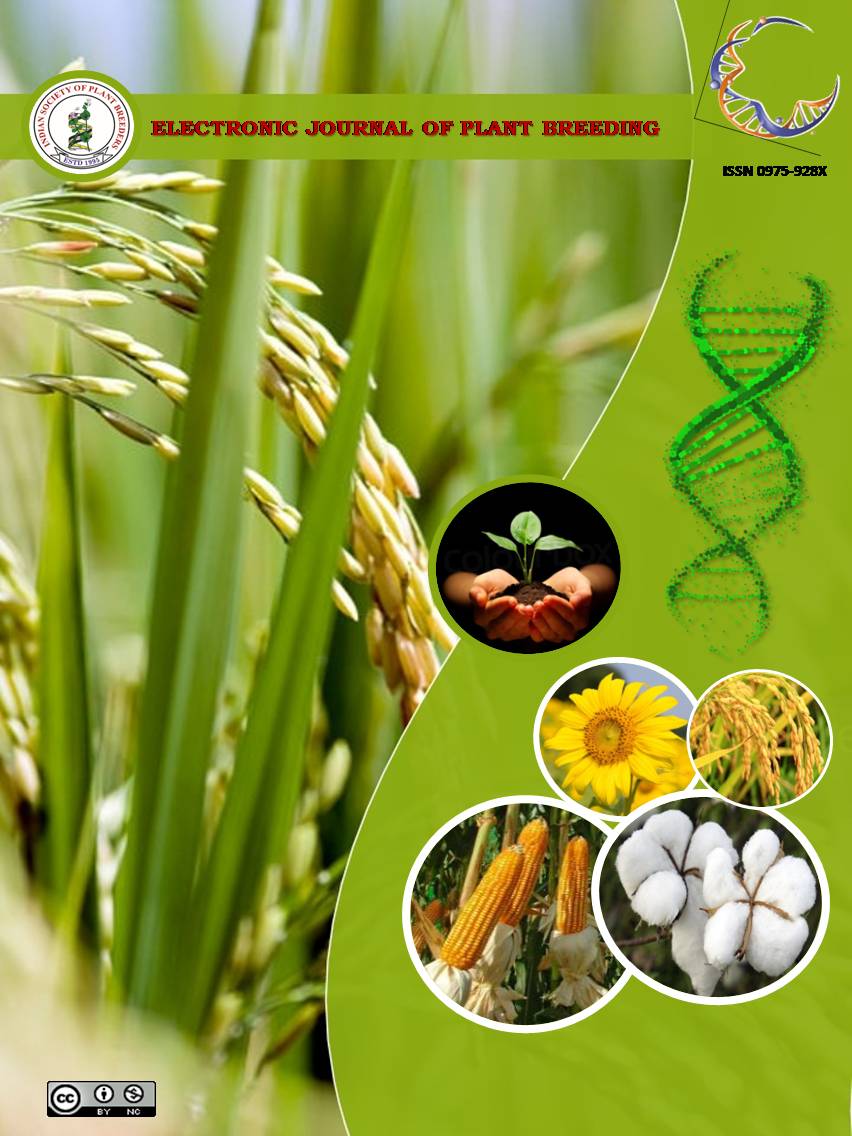Genetic analysis and trait association for yield related traits in F2:3 biparental population of rice under slightly sodic condition
Abstract
Genetic variability and correlation studies provide basic information concerning the genetic properties of the population based on which, breeding methods could be formulated for further improvement of the crop. The estimates of heritability, coefficients of variability, genetic advance and trait association were computed for eleven yield related traits in F2:3 segregating populations of biparental crosses under slightly sodic condition. Analysis of variance revealed significant differences for the traits studied except, effective tillers per plant, panicle length and test weight, indicating the existence of high genetic variability among the lines. Estimates of phenotypic coefficients of variation (PCV) were higher than genotypic coefficient of variation (GCV) for all the characters studied, indicating considerable effect of environment. Moderate heritability accompanied with high genetic advance was recorded for filled grains and unfilled grains per panicle which, indicates heritability is most likely due to additive gene effect and selection for the traits will be effective. Traits like: effective tillers per plant, panicle length, filled grains per panicle and total grains per panicle that showed, positive and significant association with grain yield per plant, could be useful for breeders in any breeding program for further improvement of the traits under sodic condition.

It is certified that:
- The corresponding author is fully responsible for any disputes arising due to the publication of his/her manuscript.
- The article has been seen by all the authors who are satisfied with its form and content.
- The sequence of names of authors in the by-line is as per their relative contribution to this experiment, giving due credit to all scientists who made notable contribution to it.
- All the authors fully understand that inclusion of any other co-authors or exclusion of any co-authors is not possible once the article has been submitted to the journal.
- The corresponding author takes full responsibility for this article.
- The address of the organization where the research was conducted is given.
- The article is exclusive for this journal, and the results reported here have not been sent (and will not be sent during its consideration by this journal) for publication in any other journal.
- Authors agree to abide by the objective comments of referees and do agree to modify the article into a short note as per the recommendation, for publication in the Electronic Journal of Plant Breeding.
- If published in Electronic Journal of Plant Breeding, the copyright of this article would vest with the Indian Society of Plant Breeders, who will have the right to enter into any agreement with any organization in India or abroad engaged in reprography, photocopying, storage and dissemination of information contained in it, and neither we nor our legal heirs will have any claims on royalty.


